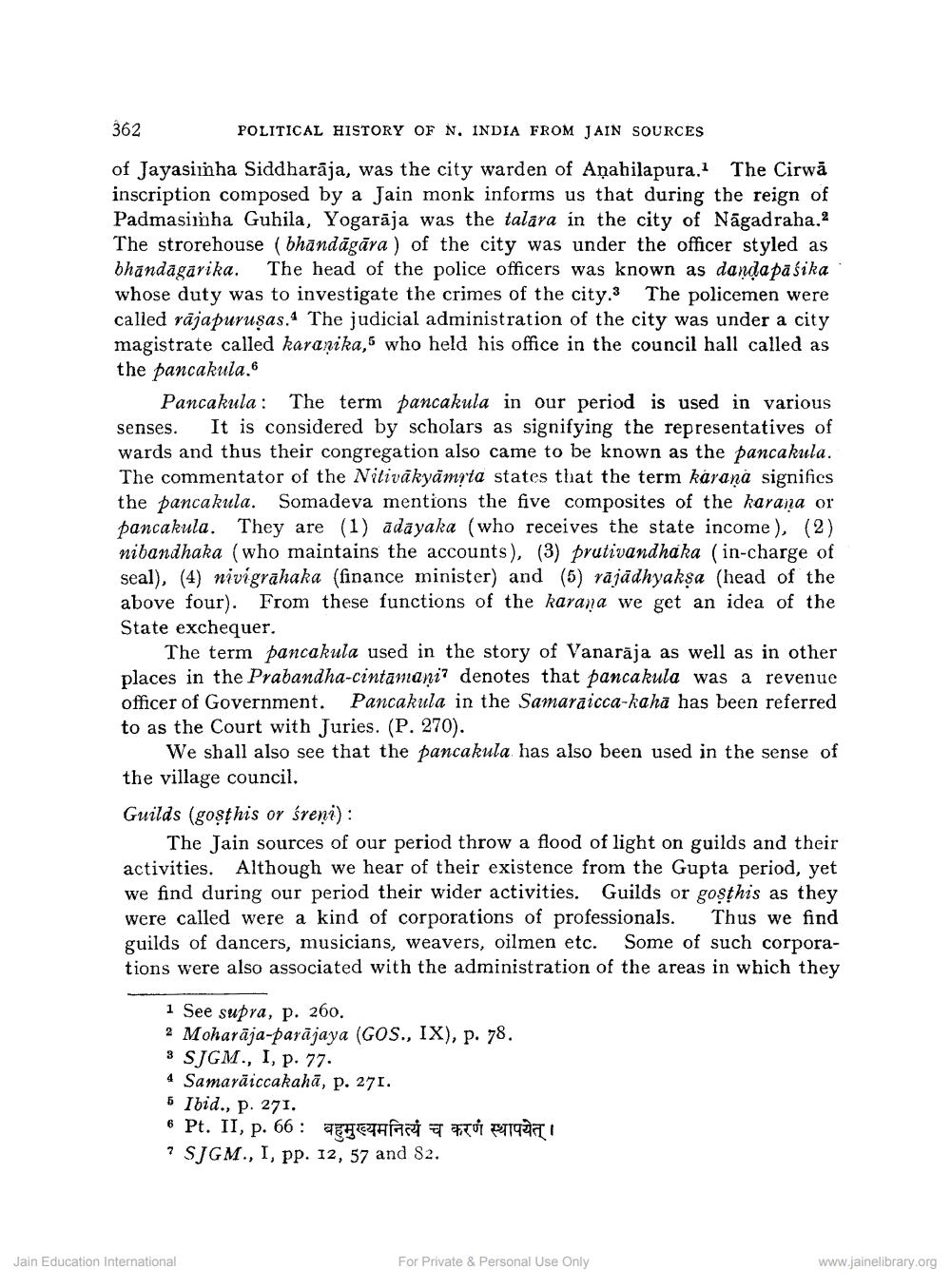________________
362
POLITICAL HISTORY OF N. INDIA FROM JAIN SOURCES
of Jayasimha Siddharāja, was the city warden of Anahilapura, The Cirwă inscription composed by a Jain monk informs us that during the reign of Padmasimha Guhila, Yogarāja was the talara in the city of Nāgadraha 2 The strorehouse (bhandāgāra ) of the city was under the officer styled as bhāndagarika. The head of the police officers was known as dandapāśika whose duty was to investigate the crimes of the city. The policemen were called rajapurusas. The judicial administration of the city was under a city magistrate called karanika,s who held his office in the council hall called as the pancakula.6
Pancakula: The term pancakula in our period is used in various senses. It is considered by scholars as signifying the representatives of wards and thus their congregation also came to be known as the pancakula. The commentator of the Niliväkyämrta states that the term karana significs the pancakula. Somadeva mentions the five composites of the karana or pancakula. They are (1) adayaka (who receives the state income), (2) nibandhaka (who maintains the accounts), (3) prutivandhaka (in-charge of seal), (4) nivigrāhaka (finance minister) and (5) rājādhyaksa (head of the above four). From these functions of the karana we get an idea of the State exchequer.
The term pancakula used in the story of Vanarāja as well as in other places in the Prabandha-cintamani? denotes that pancakula was a revenue officer of Government. Pancakula in the Samaraicca-kaha has been referred to as the Court with Juries. (P. 270).
We shall also see that the pancakula has also been used in the sense of the village council. Guilds (goşthis or śreni):
The Jain sources of our period throw a flood of light on guilds and their activities. Although we hear of their existence from the Gupta period, yet we find during our period their wider activities. Guilds or gosthis as they were called were a kind of corporations of professionals. Thus we find guilds of dancers, musicians, weavers, oilmen etc. Some of such corporations were also associated with the administration of the areas in which they
1 See supra, p. 260. 2 Moharāja-parājaya (GOS., IX), p. 78. 3 SJGM., I, p. 77. 4 Samarāiccakahā, p. 271. 5 Ibid., p. 271. 6 Pt. II, p. 66: HEART TATO VITETI ? SJGM., I, pp. 12, 57 and $2.
Jain Education International
For Private & Personal Use Only
www.jainelibrary.org




